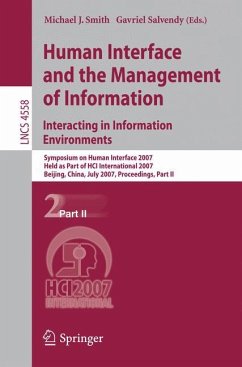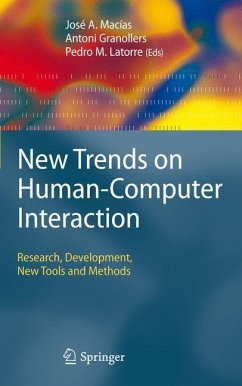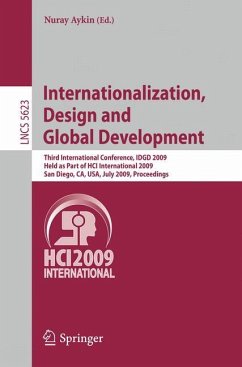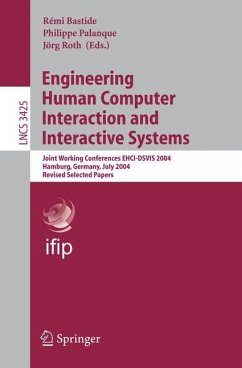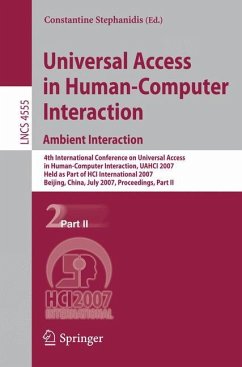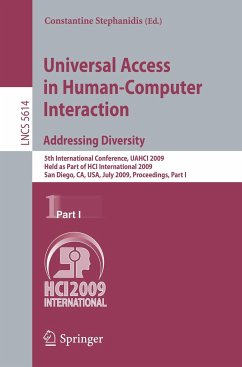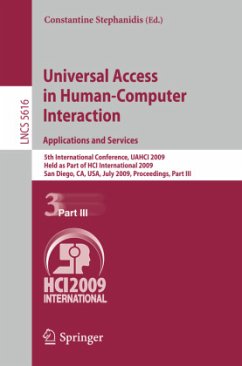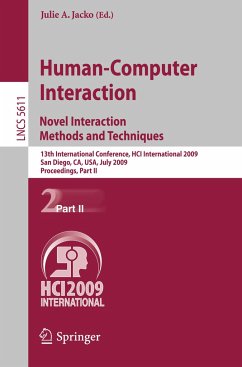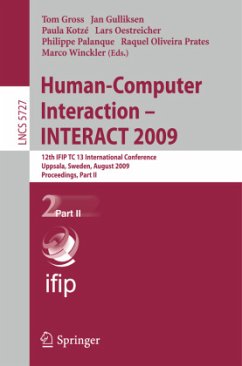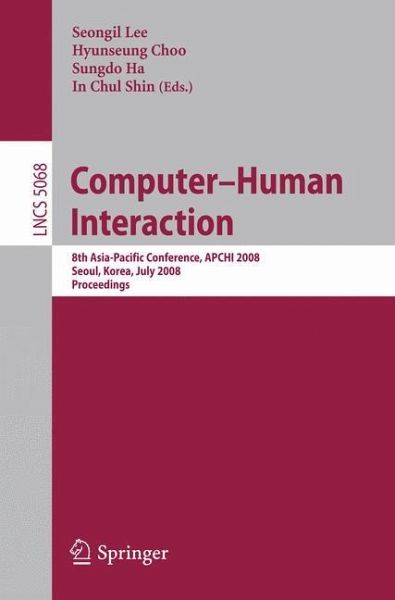
Computer-Human Interaction
8th Asia-Pacific Conference, APCHI 2008 Seoul, Korea, July 6-9, 2008, Proceedings
Herausgegeben: Lee, Seongil; Choo, Hyunseung; Ha, Sungdo; Shin, In Chul

PAYBACK Punkte
19 °P sammeln!
This book constitutes the refereed proceedings of the 8th Asia Pacific Conference on Computer Human Interaction, APCHI 2008, held in Seoul, Korea, in July 2008.
The 45 revised full papers presented together with 6 invited papers were carefully reviewed and selected from 151 submissions. The topics addressed span the entire spectrum of HCI, including ubiquitous computing, groupware, intelligent system design, human-robot interaction, virtual / augmented environment, vision-based system, mobile interaction design, novel interaction technique, usability, Web accessibility, and elderly.
The 45 revised full papers presented together with 6 invited papers were carefully reviewed and selected from 151 submissions. The topics addressed span the entire spectrum of HCI, including ubiquitous computing, groupware, intelligent system design, human-robot interaction, virtual / augmented environment, vision-based system, mobile interaction design, novel interaction technique, usability, Web accessibility, and elderly.
Welcome to the proceedings of APCHI 2008, the 8th Asia-Pacific Conference on Computer-Human Interaction held in Seoul, Korea. Following the success of the preceding APCHI conferences, in Singapore (1996, 2000), Australia (1997), Japan (1998), China (2002), New Zealand (2004) and Taiwan (2006), the 8th APCHI brought together the researchers, developers, practitioners, and educators in the field of human-computer interaction. APCHI has been a major forum for scholars and practitioners in the Asia-Pacific region on the latest challenges and developments in HCI. Theoretical breakthroughs and practical systems and interfaces were presented at this 2008 conference, thanks to the support of KADO, the HCI ITRC of Sungkyu- wan University, and KIST. APCHI 2008 featured a comprehensive program including keynote speeches, regular paper presentations, poster, demos, and special panel sessions. To address the challenge of socially blending ubiquitous computing technologies and a wider sp- trumof people with a variety of skills, knowledge, and capabilities, APCHI 2008 set "Universal and Ubiquitous" as the conference theme. APCHI 2008 attracted a total of 151 paper submissions. Among such a large number of submissions, 45 full papers were accepted as submitted or with minor revisions. All papers were reviewed by at least two reviewers. For the remaining submissions, 41 were recommended to change according to the reviews and were submitted as extended abstracts and posters. One special session with six invited papers was organized to support the conference theme of "Universal and Ubiquitous.





